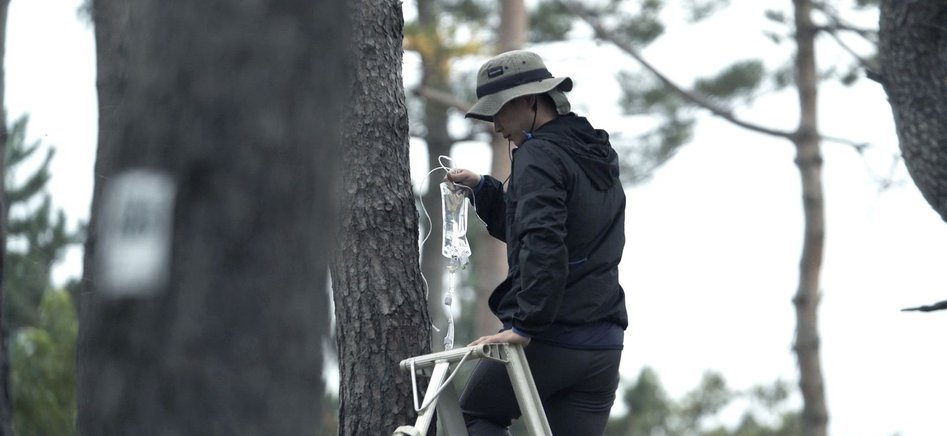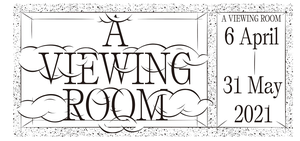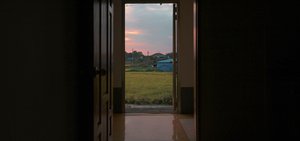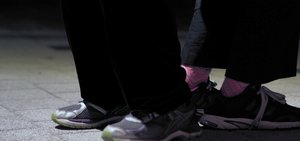A Viewing Room: Jeamin Cha

Online exhibition: Moving Images
Jeamin Cha, Sound Garden, 20th - 26th April, 2021
Living the times in which our physical and mental health are heavily challenged, Jeamin Cha and Cha Ji Ryang question the conditions of living as a human being and the psychological response to the complexities of the modern system.
In this rather dystopian era triggered by the pandemic, our society is met with collateral casualties who experience depression, anxiety and emotional contagion. Jeamin Cha’s Sound Garden (2019) focuses on the act of counselling as a tool for self-investigation, and the entangled relationship between mental health and neoliberalism. In her work, the act of counselling reflects its practicality as a systemic function of rehabilitation for people who fail to adapt to the highly-structured society, ultimately redirecting them to reality. Similar to her previous work On Guard (2018) where the protagonist’s social and private positions are contravened between the ideas of ‘caring’ and ‘guarding’, Cha again pinpoints this paradox of ‘treating’ and ‘training’ of patients through counselling within the context of capitalism. As one of the counsellor’s comments in the film, “Nobody can completely break away from the system that they’re in.”, the cultivated and transited trees for commercial use are reminiscent of us living in the moment. And Sound Garden further testifies that the roots of fear and confusion in the present society is not a mere product of the virus, but a result of our inability to heal our minds and the continued social neglect of these contemporary issues.
Whilst Jeamin Cha looks into the subjects of social structure, individuals within the system, and the alienated forms of people, Cha Ji Ryang unfolds his imagination through the cracks embedded in the social system. His work, After Life (2020) is a non-fictional video work produced through personal experiences of living in a small rural village called Naesae, which in English can be translated as ‘after life’. Through his soul-searching journey and voluntary migration to an unrealistically peaceful space, he celebrates a private but communal moment, recreating a ritual of community. In times when social distancing is perceived as a form of social vaccination, the viewers are invited to meditate on the life outside of the systems and our urban society, and re-think about individuals who negotiate daily under the unprecedented environment we are all facing.
Jeamin Cha, Sound Garden
Jeamin Cha’s Sound Garden (2019) captures scenes of large pine trees being cultivated, transported and installed by landscapers and developers with a voiceover of four female counsellors’ interviews about their patients and personal stories. The images of trees being farmed and transplanted for commercial purposes and the self-confessing voices of female counsellors combine to provoke an understanding of the human spirit that has been shaped and affected by our modern values and the ever-evolving social environment. Through the vocal display of a contemporary human figure, the film enables us to envisage an understanding of our modern society, its psychological landscape and the rather dislocated human emotions within the systems.
Artist Bio:
Jeamin Cha works variously between film, performance, and installation. Her works are not constituted of synthesized images, but lens-based, and ask about the possibilities and helplessness of visual arts and documentaries. She approaches the reality of individuals through the process of interviews and field studies, and notes how society permeates their lives. Cha has participated in numerous group exhibitions and festivals, including: Asia Culture Center, Film at Lincoln Center; KADIST; Barcelona Museum of Contemporary Art; National Museum of Modern and Contemporary Art; Berlin International Film Festival; Gwangju Biennale; Seoul Museum of Art Biennale Mediacity; Jihlava International Documentary Film Festival; DMZ International Documentary Film Festival and the Jeonju International Film Festival to name just a few.
Credit:
This video has been selected by Jaemin Cha.




